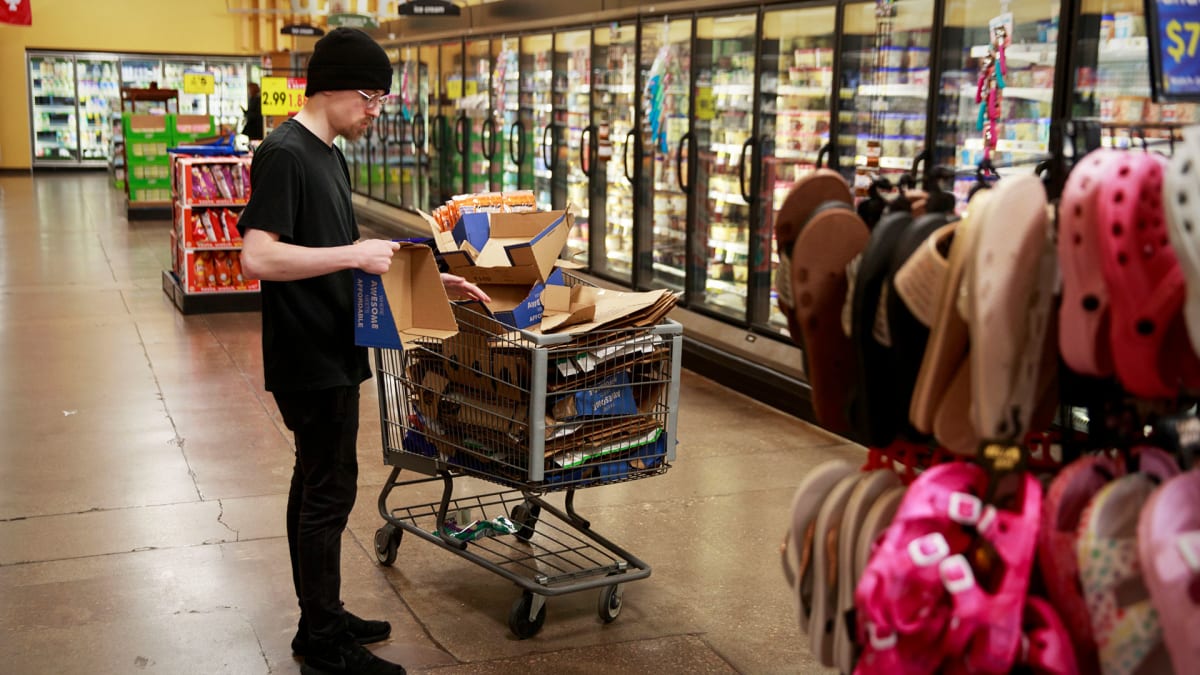
Kroger CEO Rodney McMullen has the unenviable task of appearing confident but ready to rumble should the federal regulations block his company’s proposed $24 billion merger with rival Albertsons Companies Inc. (ACI)
“Usually you wouldn’t commit in advance to litigate,” McMullen said in May. “In this case we both committed to litigate in advance.”
That McMullen is already chatting lawsuit testifies to the high stakes nature of the merger, which would create the largest supermarket chain in the country. An array of groups, including the United Food & Commercial Workers union, consumer advocates, and independent grocers, have urged the Federal Trade Commission (FTC) to reject the deal.
Adding to the uncertainty is that the FTC, under the Biden Administration, has talked tough about enforcing antitrust laws, although the agency’s bark is at times worse than its bite.
Lots of Competition for Grocery Dollars
But here’s why the FTC is in no rush to approve the merger: persistently high inflation, especially with grocery prices. Inflation is a hot topic political issue that Republicans have pressed against President Biden, especially as he runs for re-election next year. Pretty bad optics to approve a mega corporate merger, especially when the average voter is struggling to pay for milk, eggs, and meat.
Theatrics aside, there is really no compelling business reason to block the merger. Yes, The Kroger Co. (KR) and Albertsons are big chains but the grocery industry itself remains fragmented. Consumers enjoy a vast array of choices, whether mega retailers Walmart Stores Inc. (WMT) and Amazon Inc. (AMZN), regional players like H.E.B. and Schnucks, and even non-traditional players like dollar stores.
And what more, traditional supermarket chains have been rapidly losing ground to the rest of the pack, large and small competitors.
From 2017 to 2022, food retailers saw their share of total grocery market sales slip to 66.6% of sales from 69.7%, according to a new report by Coresight Research, while major mass merchandisers (Walmart, Target Corporation (TGT)) increased their share to 19.0% of sales from 18.4%.
Major discount and dollar stores inched up from 3.1% to 3.4% of sales. Major warehouse clubs like Costco Wholesale Corporation (COST) saw the greatest jump in sales share, moving to 10.9% from 8.7%.
So basically, everyone grabbed market share over the past five years, except large supermarkets like Kroger and Albertsons and regional players.
“We believe industry concentration in the US grocery market will steadily increase—predominantly in the supermarket space,” the report said.
Inflation Obscures Merger Benefits
So Kroger and Albertson could make it a good case for its merger: that they need to combine given the intense competition. The companies have argued that their combined size would give them the clout needed to pressure suppliers to lower prices.
Yet, we won’t see any of those lower prices anytime soon; the earliest date Kroger and Albertsons expect the FTC to approve the merger is early 2024. Meanwhile, consumers are paying more out of their pocketbook right now and are likely in no mood to express enthusiasm about yet another corporate mega merger, no matter its theoretical benefits.
For Kroger and Albertsons, the good news is that grocery prices increases have been cooling. In May, grocery inflation on a three-month annualized basis was -1.7%, down from -0.9% in April and a July 2022 peak of 15.7 percent, according to government data.
So perhaps inflation will cool to the point that the FTC will have the political cover to approve the union.







